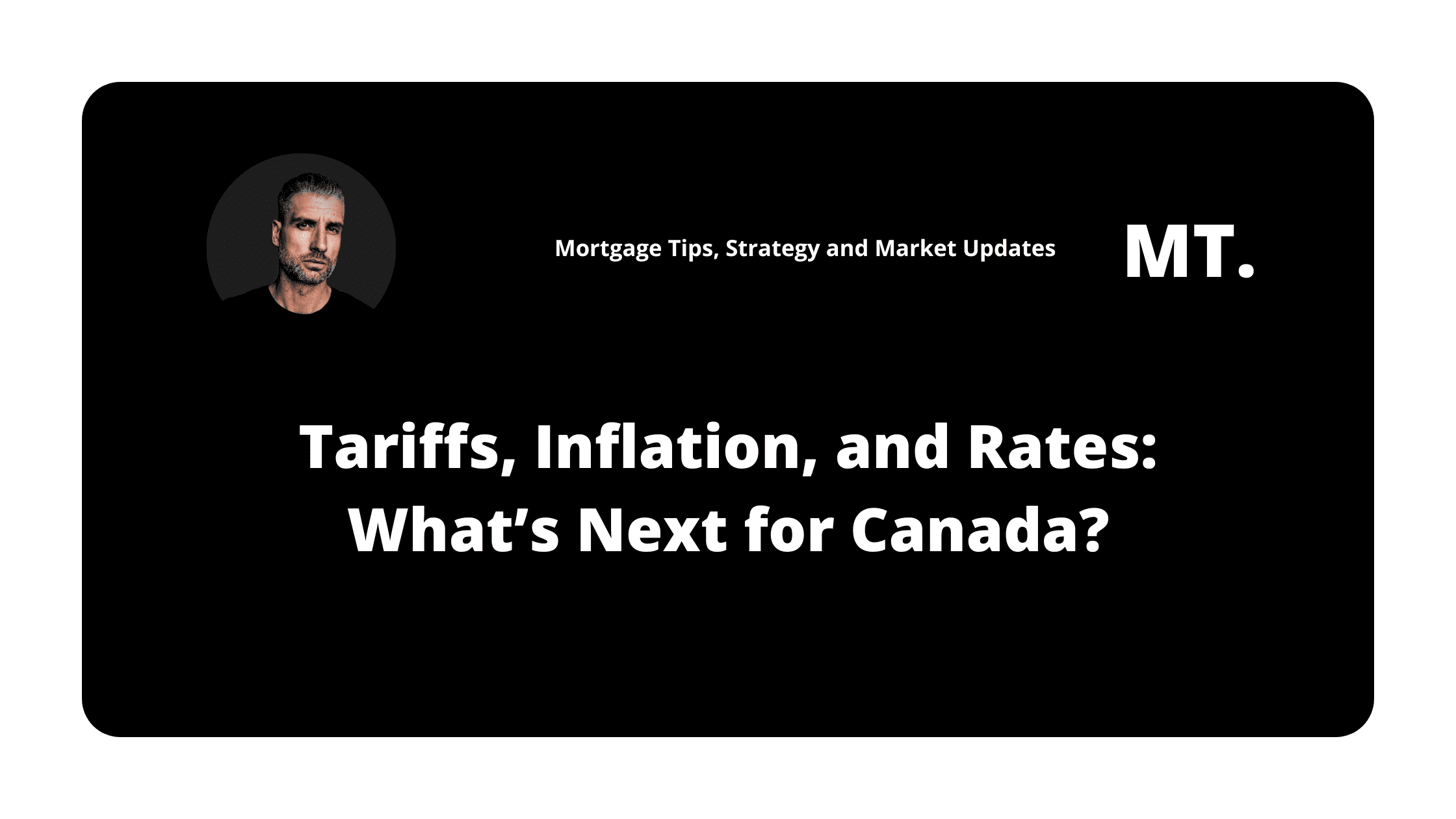Read Time: 3 Minutes
Tariffs, Inflation, and Rates: What’s Next for Canada?
Tariffs on Canadian goods would send shockwaves through the economy.
Higher costs for businesses and consumers mean rising inflation.
And inflation means interest rates could stay higher for longer.
For homeowners, buyers, and investors, the impact could be significant.
Today, we’ll cover what this means for your next mortgage decision?
Now, let’s dive in.
How Tariffs Impact Inflation and Interest Rates
A 25% tariff on Canadian goods means higher costs for companies.
And those costs?
They get passed down to consumers.
That means inflation could climb, making everything—from groceries to housing—more expensive.
But here’s the key concern:
The Bank of Canada (BoC) raises interest rates to fight inflation.
If inflation surges, the BoC may pause rate cuts or even increase rates again.
Monetary Policy Outlook for 2025
Just a few weeks ago, analysts expected up to four rate cuts in 2025—a full 1% reduction.
Now?
Some predict just one cut of 0.25%—or even no cuts at all.
Why the shift?
🔹 The tariff war could push inflation higher.
🔹 The looming Canadian election adds uncertainty to trade and markets.
🔹 The Bank of Canada is watching carefully before making a move.
And if inflation remains stubborn?
Mortgage rates may not fall as expected.
💡 Stay prepared with our 2025 Mortgage Trends Guide.
Housing Supply and Demand: A Wild Card for Mortgage Rates
Canada’s high immigration has driven home prices up for years.
But now, the government is cutting immigration targets for the first time in years.
What does this mean for real estate?
🔹 If demand stays high, home prices will keep rising.
🔹 If demand slows, housing prices could stabilize.
And for mortgage rates?
A hot housing market could keep inflation strong, forcing the BoC to delay rate cuts.
🏡 Need strategies to lower mortgage payments?
Check out 4 Tricks to Lower Mortgage Payments When Rates Are High.
Fixed vs. Variable: What’s the Best Choice Right Now?
With so much uncertainty, should you lock in a fixed rate or choose variable?
Fixed-Rate Mortgages: Stability at a Cost
✅ Predictable payments for the entire term.
✅ Protection from rising rates if inflation jumps.
✅ Lower starting costs than variable rates.
❌ Large penalties if you need to break your mortgage.
🔹 Best for: Buyers who want certainty and are planning long-term stability.
Variable-Rate Mortgages: More Flexibility, More Risk
✅ Easier to break with smaller penalties.
✅ Can lock into fixed if you think rates drop after your decision time.
❌ Higher initial rates than fixed.
❌ Risk of rate increases if inflation rises.
❌ Uncertainty—BoC cuts might not happen.
🔹 Best for: Borrowers who can handle payment changes and want potential long-term savings.
💡 Learn more in our guide on Fixed vs. Variable Rate Mortgages.
What Should You Do?
Short-Term (Next 6 Months):
- Variable rates may dip slightly if BoC cuts rates.
- Fixed rates could drop initially, and then rise if inflation increases.
Medium-Term (12-18 Months):
- If inflation stays high, fixed rates may climb.
- If economic conditions worsen, variable rates could see more cuts.
Mortgage Strategy Recommendations:
✔ If you want stability → Lock in a fixed rate.
✔ If you believe rates will drop → Choose a variable.
✔ If you’re unsure → Consider a hybrid (split) mortgage.
A hybrid mortgage lets you split your loan between fixed and variable, balancing risk.
With the right strategy, you can navigate rate uncertainty and secure a mortgage that aligns with your financial goals.
The mortgage market is evolving faster than expected.
The best choice today may not be the best choice a few weeks from now.
We can help you navigate your options today!
Contact us to learn how we can help you navigate the mortgage process with confidence.
Overview
Subscribe to begin.
Join 7.5k+ subscribers and get tips, strategies and market updates every other Thursday morning.







